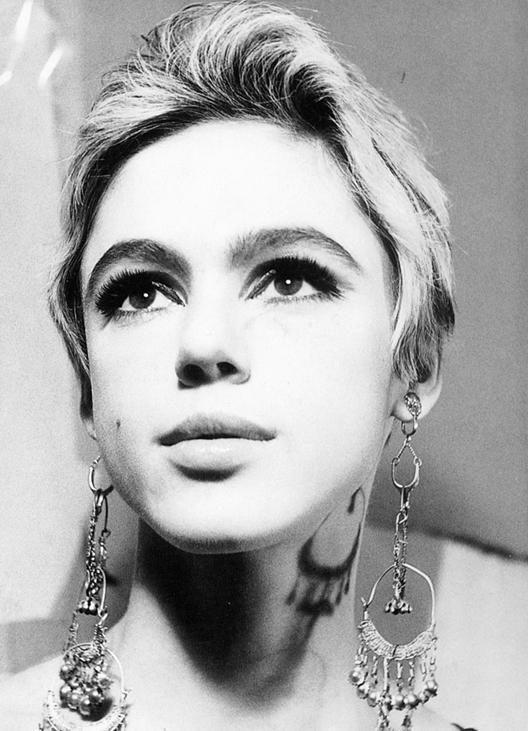





THE PROBLEM OF THE MUSE
by Charlie Finch
Edie Sedgwick stands out amidst a long line of modern muses such as Jane Avril, Dora Maar, Ruth Kligman, Ilona Staller and Dash Snow. Edie is the problem of the muse: a figure one wants so to behold but never to be. The fascination with her since her death in 1971, at the age of 28, has never abated. Her friend, filmmaker David Weisman, in his book Edie: Girl on Fire (Chronicle Books, co-authored with Melissa Painter), describes going before a film class at USC in 1998, prepared to talk about his award-winning film Kiss of the Spider Woman, and being stunned when the students only wished to know, "What was Edie like?"
The answer has been sought in Jean Stein and George Plimpton’s bestseller Edie, in Sienna Miller’s erotic portrayal in the new film Factory Girl, in David Bourdon’s Warhol and in Weisman’s film of Edie’s last years Ciao Manhattan, memorably filmed in the bottom of an empty swimming pool. Edie’s appeal lies in the simple fact that being a muse is the road to ruin, a doctorate in destruction of self worthy of Artaud. In a CD included in Edie: Girl on Fire, she matter-of-factly steps outside her myth, deconstructing and destroying it.
Those who associate Edie with giggly girlishness will be amazed at her patrician voice, full of Brahminesque authority. She offhandedly dismisses the fashion world by saying that her twice-a-day New York workouts during the ‘60s compelled her to wear a leotard all day. When she added a shirt, "Vogue" noticed and a style erupted.
Edie remembers her father convincing her that a police car was really an ambulance, before it hauled her off to one of a string of nuthouses, while her authoritarian Dad trailed her in a limousine. She dismisses the Warhol crowd, characteristically, as "faggots," and explains that the suicides of two of her brothers drove her into the silver fog of the Factory, because "at that time I wasn’t much interested in sex anyway."
Masochistic memories of Herculean drug use tickle her fancy, as her prescription for getting off a parentally imposed Nembutal habit by "shooting myself up with speed every two hours to break myself apart." Throughout the Girl on Fire CD, Edie sounds about 50 years old, even though she was 27 at the time, but, in typical muse fashion, her general air is that she regrets nothing. In a Christ-like manner, Edie conveys the sense that the ultimate form of selfishness is to give your persona to others to the point of self-destruction.
There are clinical names for such behavior but not for the thousands of us who worship her transcendentally photogenic image still. So we will give Edie, as eternal muse, the coda, "I’d like to turn the whole world on just for a moment. Just for a moment." The life ends and the moment goes on. Such is the calling of the muse.







I love this post, my fascination with Edie began with Factory girl-also where my love of wayfarers began. She and Bob Dylan (As portrayed by my love, James Franco) rocked the classic black glasses with such panache, I knew I had to have them. So much of our style these days is stolen from Manhattan in the 60's and the beats. Anyway, I love this, I love Edie, and after this article, my own desire to be a muse has diminished. Better to be the creator anyway, right?
ReplyDeleteIt seems distracting, maybe (self -?) deceptive to exalt Edie Sedgwick the muse. Distracts you from her true story. To be fascinated with her, that's ok. But in truth she seems to be a person whom no one really loved.
ReplyDelete